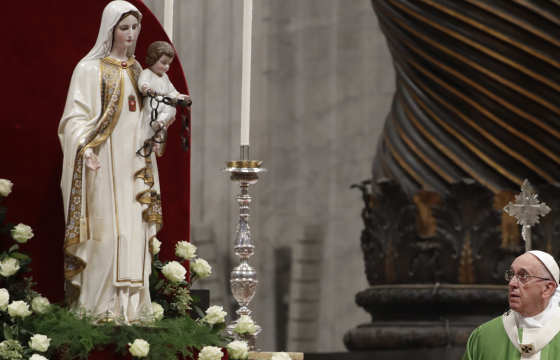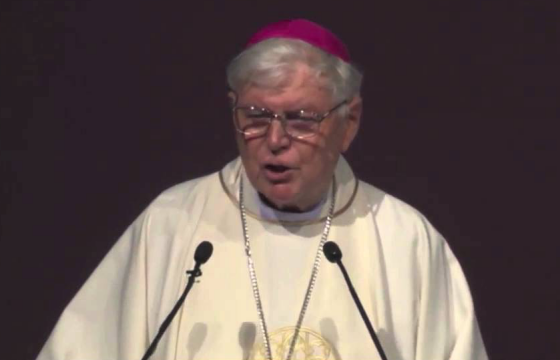The leader of the only other diocese in South Australia, Bishop Gregory O'Kelly of Port Pirie, wrote in a Pastoral Letter after the euthanasia legislation failed to be carried that MPs who supported the Bill should be welcomed by the Catholic community with courtesy and charity, but questioned whether they should be given places of honour at Church events celebrating life.
O'Kelly, a Jesuit, wrote that he was relieved the Bill did not pass. "There was good will and good conscience on both sides, but I thank those parliamentarians who spoke so well, despite the campaign of celebrities, to ensure the Bill did not pass," he wrote.
"No one wants people to die in pain, especially those who like myself have seen a beloved sister die of bone cancer and a younger brother die of encephalitis over six terrible weeks, and that is why the Church is so largely involved in palliative care and Homes for the Aged, where there is such devoted attention for the frail. And the Church does not prohibit pain relief, even if a side effect is the shortening of life for the grievously ill. Better palliative care, not euthanasia, is a proper response."
O'Kelly quoted English novelist (and columnist for The Tablet) Sara Maitland: “Pain and fear undermine sound judgement and can lead to confusion and depression.”
He wrote that it would have been a dark day had Parliament authorised euthanasia and it was “a dark universe” when Parliament permitted doctors and nurses to change from being ministers of healing to agents of death.
“I cannot imagine how doctors and nurses who perpetrate an abortion must feel afterwards, but it must do damage to their sense of vocation as ministers of healing.
"It would be the same with euthanasia. We also know from our South Australian experience with abortion that earlier precautions and safeguards were all gradually whittled away, to the point that abortion is now performed on demand. In Belgium and the Netherlands, formerly such Catholic countries, despite early restrictions euthanasia is now being arranged for young people and in Belgium for the mentally ill. Who next?
"So how do we as a Catholic community react to politicians who voted for euthanasia? With courtesy and charity. We live in a democracy. Whether we should give them places of honour in our fiestas and cultural celebrations when we invite them is another question. Such events celebrate life, not death."
In the letter published last week, O'Kelly expressed thanks to medical and professional staff and carers, who he said did so much to care for the ill and frail.
The letter echoed many of the sentiments Bishop O'Kelly expressed in a Pastoral Letter on 14 October, when earlier euthanasia legislation was before the Parliament. He wrote that his own quadruple bypass, bowel cancer surgery and 30-week chemotherapy course in the previous 14 months "remind one forcefully of the prayer of the Lord, 'Thy will be done', and how life is a gift, to be cherished and given thanks for every day".
O'Kelly wrote that good people often were confused about the Church’s attitude towards euthanasia, thinking that Catholics were told they must go to extraordinary means to keep life going.
"The teaching of the Church is simply that there can be no direct intervention, with the deliberate intention to kill. The doctor who administers morphine to relieve pain, even though the incremental additions will eventually bring about death, is not in contradiction with the Church’s teachings. People tend to think that the Church is opposed to any form of alleviation of pain, and this is just not the case.
"There are many things being said about this very sensitive topic. Those of us who have watched a loved one die, especially if it is a hard dying, can sympathise with the compassionate words of those who promote euthanasia. But often the sentiments to end it all are in the beholder, not in the patient. The St Vincent’s Hospital doctors report that it is very rare indeed for a dying patient to ask for euthanasia, and the request often comes from the family instead. I am not aware of any such requests coming from the many residents in our Homes for the Aged. Very few of the dying seem to ask for it.
"May our fellow citizens join with us in revering and holding sacred the human life of the frail and dying knowing that the Lord’s 'imperishable spirit is in all'."




 Loading ...
Loading ...